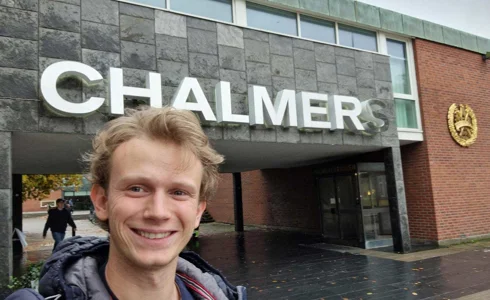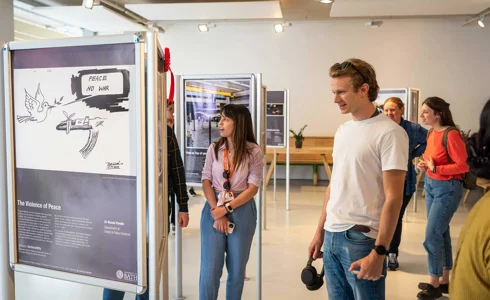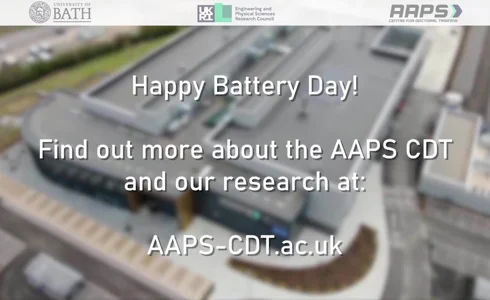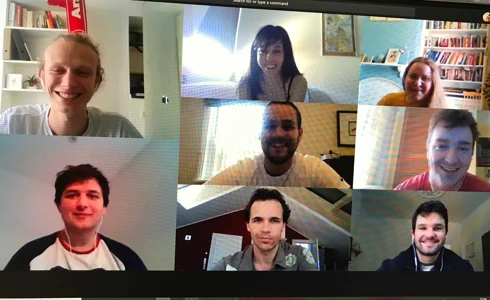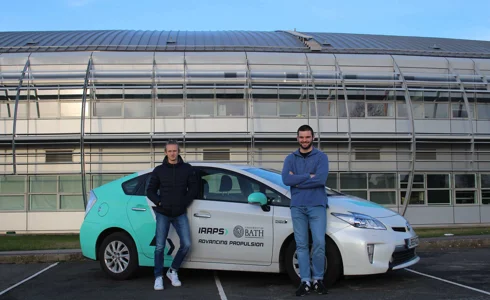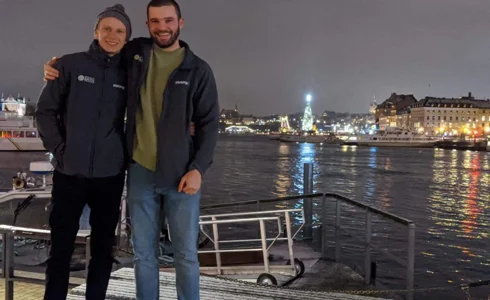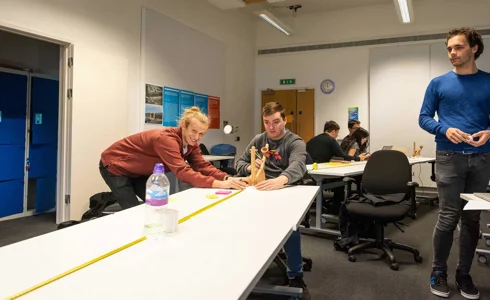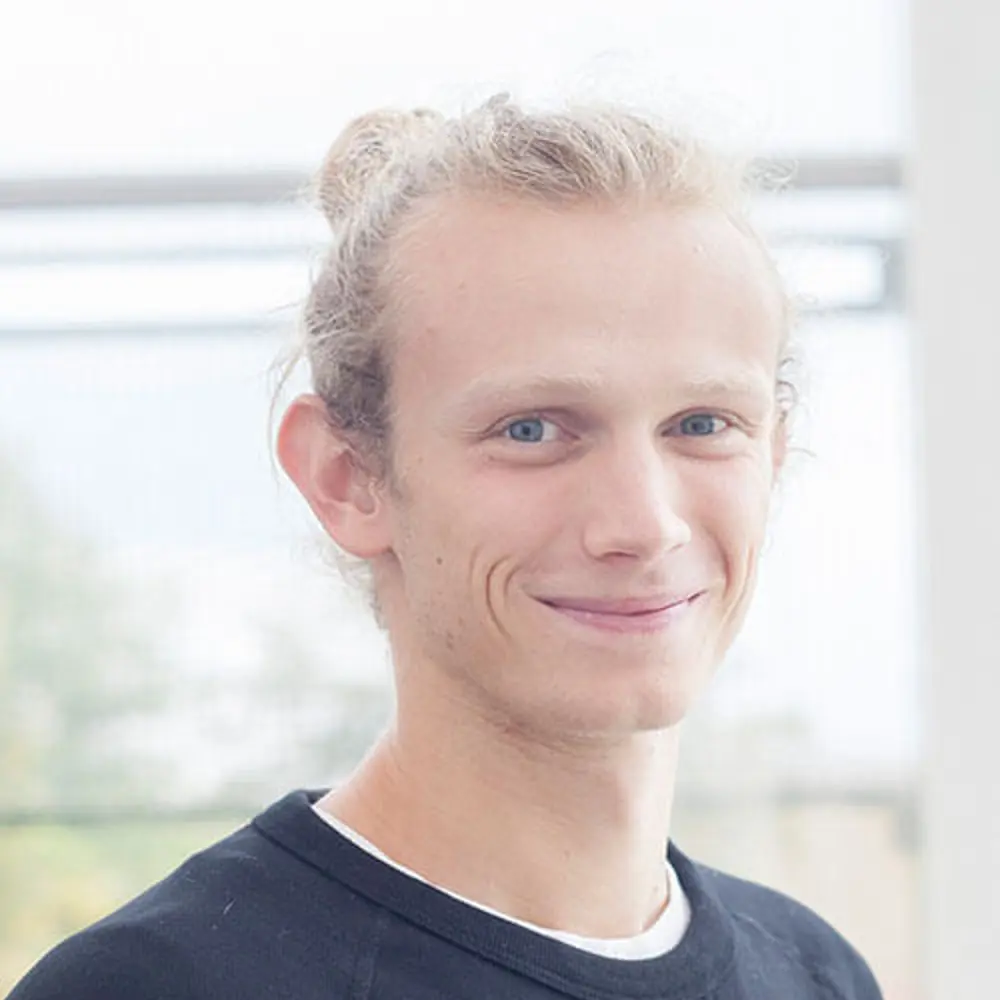
Dr Thomas Barthelay
Theme
Propulsion ElectrificationProject
Computational modelling and analytical measurements of lithium intercalation into carbon fibre to better understand their multifunctional propertiesSupervisor(s)
Dr Andrew Rhead, Prof Steve Parker, Dr Alex LuntIndustry Partner
GKNThomas's Journey in AAPS: An Alumni Profile
Thomas graduated from the University of Manchester with an MChem Hons, focusing on the structural features of Metal-Organic Frameworks (MOFs) for small molecule storage. During his undergraduate studies, he also interned at ITODYS Laboratories at Université Paris Diderot, working on high-efficiency photovoltaic titanium oxide cells. These experiences sparked his interest in developing cleaner and more sustainable propulsion systems. He aimed to leverage his chemistry expertise to benefit the transport industry and achieve lower emission travel, which led him to apply for the AAPS CDT program.
PhD Focus
Thomas's PhD, titled " Structural battery electrodes: Full cell development and computational anode study" was supervised by Andrew Rhead, Steve Parker, Alex Lunt, Frank Marken, and Chris Bowen with industrial partnership from GKN Aerospace.
His research focused on enhancing the construction of structural batteries made from carbon fibre. He explored the electrochemical performance of individual electrodes under different conditions and used atomic modelling to understand the structural changes occurring during charging. This work involved partnerships with the University of Virginia and Chalmers University.
Thomas spent 3 months visiting Chalmers as part of the AAPS Travel Scheme, with additional aid from the Arthur Clement’s Fund where he was able to collaborate on multiple projects with the structural battery group led by Leif Asp. In addition to this, Thomas was also successful in obtaining time at Diamond Lightsource to study the structural battery components in greater detail than previously possible. He was also successful in obtaining funding to use the GW4 Isambard High-Performance Computer for his computational simulation work on the carbon fibres themselves. Thomas's ground-breaking research provided valuable insights into the fundamentals of battery chemistry and of carbon fibre-based structural batteries.
Looking Forward
Since finishing his PhD, Thomas has been working as Postdoctoral Research Assistant in Advanced Battery Manufacturing methods at the Department of Materials, University of Oxford as part of the Faraday Institution's NEXTRODE project. He looks forward to building upon the knowledge gained through AAPS and his PhD, embarking on the next steps of his career.
The reflection on AAPS
For Thomas, one of the most valuable aspects of AAPS was the opportunity to collaborate with individuals from various sectors within the automotive industry. AAPS provided a platform for him to contribute his expertise and work alongside like-minded individuals, driving sustainable advancements in automotive technology.
Thomas thoroughly enjoyed the collaborative environment within the AAPS CDT, especially the Integrative Think Tanks/Research Incubators. Being at the forefront of discussions between industry and academia was a fulfilling experience unique to the CDT. The breadth and depth of knowledge gained at the University of Bath gave him the confidence to pursue ambitious goals and make a meaningful impact in his chosen field.
Reflecting on his time in AAPS, Thomas appreciated the collaborative environment and the opportunity to gain a comprehensive understanding of his field. He valued the experience of working closely with industry partners and the chance to develop soft skills essential for his professional growth. These experiences have prepared him well for his future endeavours.
